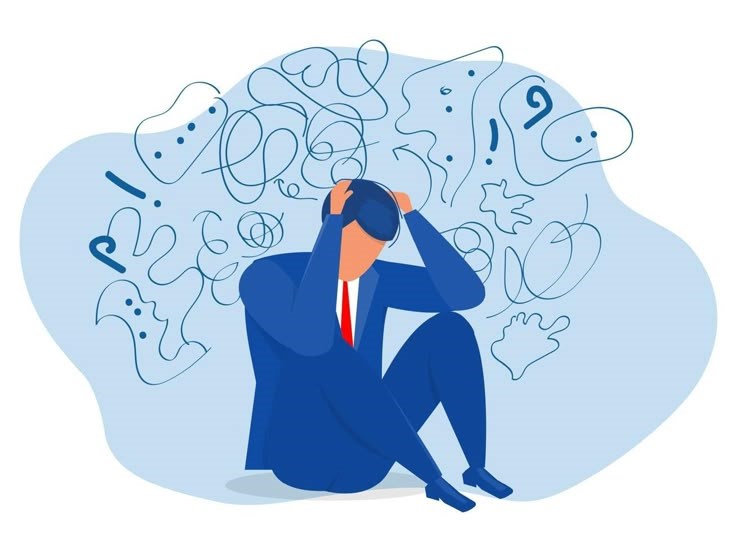
24-Jun-2025 , Updated on 6/24/2025 7:56:16 AM
Overthinking: Why It’s More Harmful Than You Think
Physical Toll of Chronic Overthinking
Continual overthinking causes the body to activate the stress system by secreting cortisol and adrenaline on a constant basis. This biochemical condition is physically evident in terms of disturbed sleep pattern which leads to exhaustion and poor immune response heightening prone to illness. Tension in muscles often leads to aches or head ache. Overthinking has been associated with high blood pressure, gastrointestinal problems, and increased systemic inflammation when the stress is chronic. This inflammation is considered one of the risk factors of chronic diseases. The physical effects are an observable decline in general physical well-being, which proves major psychophysiological damage inflicted by prolonged overthinking.
Paralyzes Decision-Making Ability
Overthinking causes paralysis of decision-making, at the moment when people are locked in the continuous loop of examining possibilities and expecting something bad to happen. This is too much emphasis on errors that might happen and the fear of regrets makes one not to act. The brain is sucked out by thinking about the merits and disadvantages of every action continuously. As a result, the indecisions are consecutively postponed or not made at all. Such inability to commit speeds right to the missed opportunities and stagnation on a personal level. The procedure itself increases anxiety which makes the ability of acting decisively even more crippled.
Damaging Social and Relational Impacts
Overthinking is a verifiable vice against social ties and relationships. The constant scrutiny of relations is the source of misunderstanding and fears. The behaviour is expressed in unfair accusations, emotional detachment or reassurance-seeking too often, and this negatively affects the relations with partners, friends, and family. Unrelenting overthinking destroys basic faith because every casual conversation is examined on its possible, implicit meaning. Moreover, the distraction that is part and parcel of overthinking hinders genuine interaction and emotional accessibility in communication. Partners start to feel unattended, friends feel less close, intimacy is ruined because the over-thinker buries himself in his own storytelling wherein he is unable to relate to people on a deeper level. What this procedure eventually leads to is seclusion of people and the ruination of crucial relationships.
Cognitive Drain and Mental Exhaustion
Excessive thinking results in severe mental pressure and fatigue directly. Obsessive thinking occupies too many brain cells and deprives them of the most important processes such as extended attention span, effective decision-making, and innovative thinking. This non-stop activity quickens mental exhaustion. Most importantly, the physiological effect is quite significant: overthinking upsets the production of stress hormones cortisol and distorts the sleep schedule. The combined brain strain becomes brain fatigue which is characterized by faulty decisions, mood swings and extreme difficulty paying attention reducing the general strength of thinking way past normal fatigue. This vicious cycle must be met by proactive mental rest.
Breaking the Overthinking Cycle
Overthinking impairs people to think constructively without doing the same in the same manner. This is not the regular worry but is quite damaging. Sustained stress as a result of chronic overthinking makes the brain and decision making affected. It aggravates the perceived issues, contributes to anxiety and depression and robs the mind of energy required to do the current job. More importantly, it causes decision delusion where one fails to take a serious step and loss of self-esteem. To break this cycle and its hurtful pattern, it is critical to identify this cycle as the unproductive instead of the productive work of analysis. They usually need professional help to stop this tendency.

Content Writer
Hi, I’m Meet Patel, a B.Com graduate and passionate content writer skilled in crafting engaging, impactful content for blogs, social media, and marketing.
Join Our Newsletter
Subscribe to our newsletter to receive emails about new views posts, releases and updates.
Copyright 2010 - 2026 MindStick Software Pvt. Ltd. All Rights Reserved Privacy Policy | Terms & Conditions | Cookie Policy